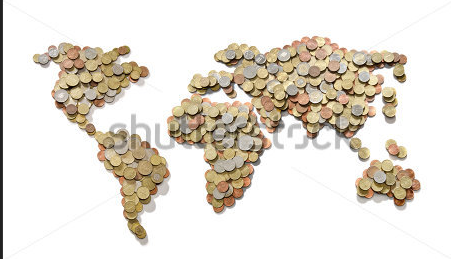
Recently while doing some research on the 2011 “Occupy Wall Street” movement and the widening wealth gap, I revisited Naomi Klein’s bestselling book No Logo. First published in 1999, it is a well-written, exhaustively researched, and cogently argued handbook of the anti-globalisation, anti-unfettered-capitalism left. But it’s like the curate’s egg – good in parts.
It passes the weight test, containing enough case histories, illustrations, charts, and non-sequiturs to win a Government tender. It also contains some lessons, but not in the way Klein thinks.
I’m not going to give case-by-case comments on her arguments because, a) many fall down due to flaws in her underlying assumptions, and b) those that don’t fall down I tend to agree with.
I would imagine her supporters and opponents are divided along socio-political lines; those on the right gnashing their teeth in fury that an opponent could be so articulate, and those on the left getting a real buzz from their oracle’s clarion call.
Essentially Klein’s arguments amount to an attack on the visible symbols of global businesses.
I get an uneasy feeling from the inherent negativity that assumes success is bad and achieved only at the expense of someone else. It lauds the destruction of symbols of success, a spiteful resentment reflected in the evil attacks on New York’s twin towers.
I fail to see any nobility in kicking over someone else’s sandcastle if you have neither the wit nor energy to build one yourself. Not only is it destructive, ultimately it’s terminal. All revolutionaries have to stop revolting after a time – and start building. In the long run people learn more from success than they do from failure. But I digress.
Ms Klein does nothing to address the obvious Economics 101 notion that the wheels of the world are lubricated by trade – and hence, money. She argues brands are bad because they are controlled by corporations domiciled in developed nations, which cynically exploit the manufacturing resources (sweatshops) or labour (innocent children) of the third world in order to maximise profits.
Exploitation of innocents or the vulnerable is inexcusable. But by taking on production from overpriced economies, businesses in China, Japan, Singapore, Malaysia and other former economic minnows have grown. And by using the knowledge thus acquired, they have built their way to prosperity.
Global businesses and activist movements alike will always seek scalability; the lowest cost of input and maximum return on investment.
It’s been the same throughout history. Colonies fed Europe, as the Middle East fed Rome. Many nations established their economies through making goods for other markets; it’s a cyclic pattern of supply and demand as old as time.
Closer to home, why did the sailing world beat a path to New Zealand’s door when super-yachts needed building? Because we built great yachts for less, due to our lower exchange rate and wages. Should we have sent buyers away because they weren’t paying as much as they would in the US? It’s the same argument.
In some circles profit is a dirty word, but businesses close without it. Without profits there is no wealth, without wealth there is no income, without income there is no tax, without tax there is no government.
Now we come to the parts of Ms Klein’s arguments with which I agree. When she says global brands are wrong if they assume that one size fits all; I say, “Go Ms Klein! You wee ripper!” The relentless push for centrally driven, global homogeneity denies organisations the benefit of ideas and inputs from the far reaches of their markets. They should remember that change is vital for the health of any organism – and it first occurs at the edges.
Sadly, global brands are costly to build, and financial, not cultural measures often prevail. Paradoxically, the quest for global uniformity ignores local nuances and, ironically, becomes counter-productive because in the long run, bland, universal brand messages don’t stick.
But like it or not globalisation was locked into our lives with the internet.
We should turn it to our advantage. We need to do more of it ourselves. We need to make “New Zealand made” mean not just “made for me”, but “made at the edge for the thinking world”.
That way we’ll both strengthen our own culture and build businesses that thrive and prosper in our unique environment.
In the end I give Klein an ‘A’ for preparation and neatness, but only a ‘C’ for content. She’s got part of the answer right, but for the wrong reasons. ?




